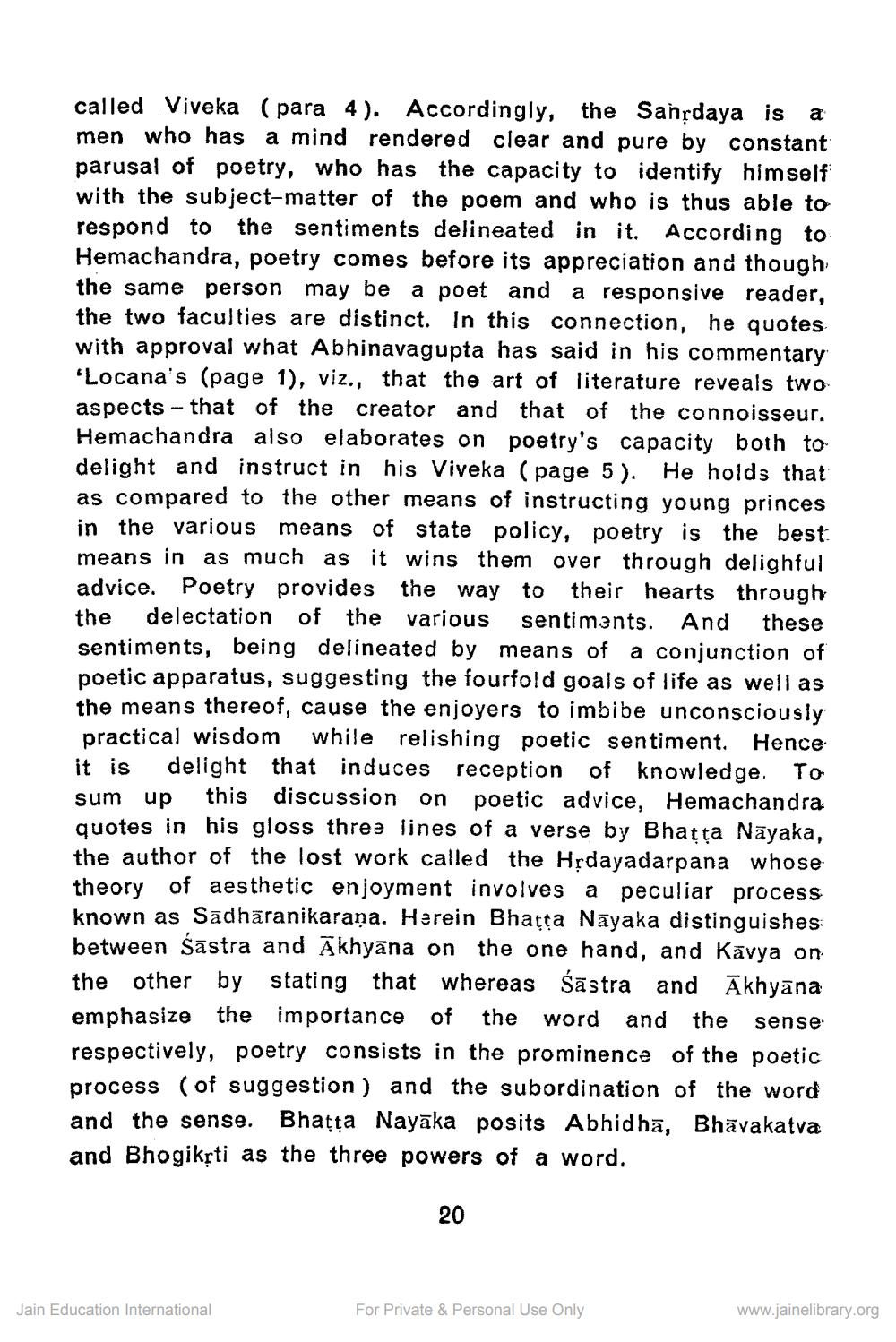________________
called Viveka (para 4). Accordingly, the Sanțdaya is a men who has a mind rendered clear and pure by constant parusal of poetry, who has the capacity to identify himself with the subject-matter of the poem and who is thus able to respond to the sentiments delineated in it. According to Hemachandra, poetry comes before its appreciation and though the same person may be a poet and a responsive reader, the two faculties are distinct. In this connection, he quotes with approval what Abhinavagupta has said in his commentary 'Locana's (page 1), viz., that the art of literature reveals two aspects - that of the creator and that of the connoisseur. Hemachandra also elaborates on poetry's capacity both to delight and instruct in his Viveka (page 5). He holds that as compared to the other means of instructing young princes in the various means of state policy, poetry is the best means in as much as it wins them over through delighful advice. Poetry provides the way to their hearts through the delectation of the various sentiments. And these sentiments, being delineated by means of a conjunction of poetic apparatus, suggesting the fourfold goals of life as well as the means thereof, cause the enjoyers to imbibe unconso practical wisdom while relishing poetic sentiment. Hence it is delight that induces reception of knowledge. To sum up this discussion on poetic advice, Hemachandra quotes in his gloss three lines of a verse by Bhatta Nāyaka, the author of the lost work called the Hidayadarpana whose theory of aesthetic enjoyment involves a peculiar process known as Sadhāranikaraņa. Herein Bhatta Nāyaka distinguishes between śāstra and Akhyāna on the one hand, and Kavya on the other by stating that whereas śāstra and Akhyāna emphasize the importance of the word and the sense respectively, poetry consists in the prominence of the poetic process (of suggestion) and the subordination of the word and the sense. Bhațţa Nayāka posits Abhidhā, Bhāvakatva and Bhogikști as the three powers of a word.
20
Jain Education International
For Private & Personal Use Only
www.jainelibrary.org




